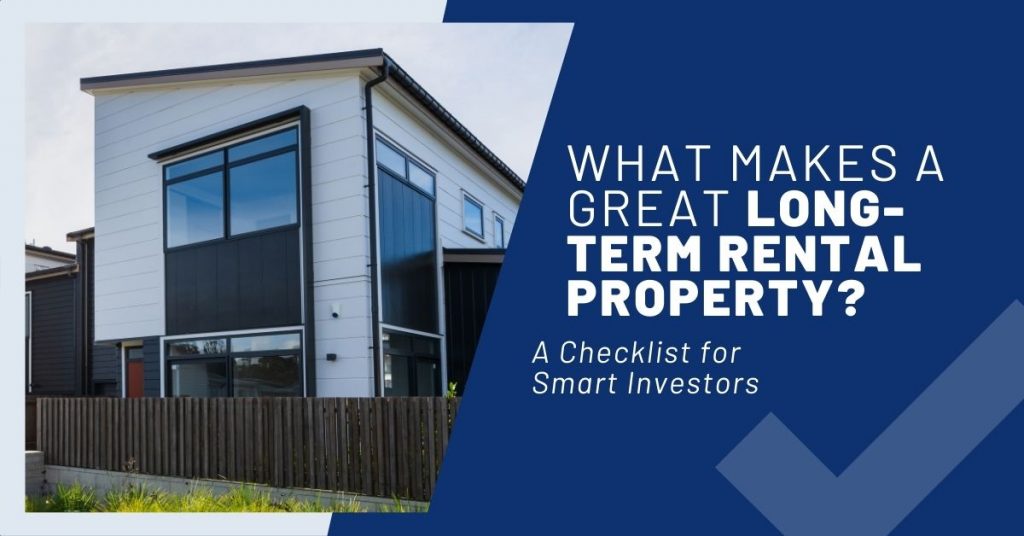Real estate continues to dominate as America’s favorite long-term investment strategy. For the 12th straight year, 37% of Americans say real estate is the best investment choice—nearly double the popularity of stocks at just 16%.²
Investors are backing this up with action: in 2024, they purchased 13% of all homes sold nationwide.²
Why? Because rental properties provide unique advantages traditional investments can’t match. They generate multiple income streams: monthly rent payments, equity growth, and long-term appreciation. Leverage further amplifies returns, as a 20% down payment gives you exposure to 100% of the property’s appreciation. Add in tax benefits like depreciation and deductible expenses, and it’s easy to see why rental property investing continues to build wealth for millions of Americans.³
But success isn’t automatic. To find the best opportunities, you need a strategy and a checklist.
How Rental Properties Build Wealth
Great rental properties deliver wealth through three complementary channels:
- Cash Flow: Net monthly income after expenses. Example: A duplex renting for $3,300/month with $2,700 in expenses produces $600 in positive cash flow.
- Appreciation: U.S. home values historically increase 3–5% annually.⁴
A $300,000 home appreciating 5% annually adds $15,000+ to your equity each year. - Equity Growth: As tenants cover the mortgage, principal balances fall, steadily increasing your ownership stake. A $500 monthly principal reduction builds $6,000 equity annually.
When combined, these three pillars compound into impressive returns for patient, long-term investors.
Who Should Invest in Long-Term Rentals?
Rental property investing isn’t for everyone. The most successful investors typically share these traits:
- Financially stable, long-term thinkers: Expect to need a 20–30% down payment and cash reserves for repairs and vacancies.⁵
- Detail-oriented and patient: Nearly 90% of investors face challenges like difficult tenants or surprise repairs.⁶
- Hands-on and resourceful: Landlords who can handle basic maintenance and tenant management save significantly on costs, boosting returns.
If these traits describe you, you’re better positioned to thrive in this space.
Where to Begin Your Investment Journey
The first step is partnering with an investment-savvy real estate agent who can provide:
- Access to off-market deals
- Neighborhood insights to spot in-demand rental areas
- Deal analysis support (cash flow, cap rate, ROI)
- Connections with contractors, lenders, and property managers
With the right professional guidance, you can avoid costly mistakes and scale your rental portfolio faster.
Rental Property Evaluation Checklist
Here’s the step-by-step framework successful investors use when evaluating long-term rentals:
✅ Location & Market Analysis
- Target areas with job growth, universities, or transit hubs.
- Research vacancy rates (low vacancy = strong rental demand).
- Evaluate school districts and crime rates for tenant quality.
✅ Financial Analysis
- Calculate expected rent minus expenses: mortgage, taxes, insurance, HOA, management fees, repairs, and vacancy reserves.
- Apply the 1% rule: Rent should equal 1% of purchase price + repair costs.⁵
- Stress-test returns: What if rents fall 5% or expenses rise 10%?
✅ Property Condition & Carrying Costs
- Inspect major systems: roof, foundation, plumbing, HVAC, and electrical.⁷
- Consider layout—3 bed/2 bath homes attract long-term tenants.
- Research property taxes and insurance (especially in flood zones).
✅ Property Type Selection
- Stick to single-family homes, condos, or townhomes when starting out.
- Avoid niche properties like luxury estates or tiny studios unless you’re prepared for higher vacancy risk.
✅ Due Diligence
- Verify rent comps and sales comps independently.⁷
- Review inspection reports thoroughly.
- Understand local landlord-tenant laws to avoid compliance risks.
Bottom Line: How to Find Great Rental Properties
The best long-term rental properties aren’t discovered by chance. They’re chosen systematically, using clear criteria that balance cash flow, appreciation potential, condition, and location. With patience, analysis, and the right professional team, rental investing can provide steady cash flow today and long-term wealth tomorrow.
Are you ready to build a portfolio of high-performing rental properties? Let’s discuss how these strategies apply to opportunities in your target market.
Sources
- Gallup – Real Estate Still Best Investment
- Realtor.com Research – Investor Report June 2025
- Investopedia – Real Estate vs. Stocks
- Redfin Blog – Average Home Appreciation
- Investopedia – 10 Factors to Consider When Buying an Income Property
- Clever Real Estate Survey – Residential Real Estate Investing 2024
- Investopedia – 5 Ways to Value a Rental Property

